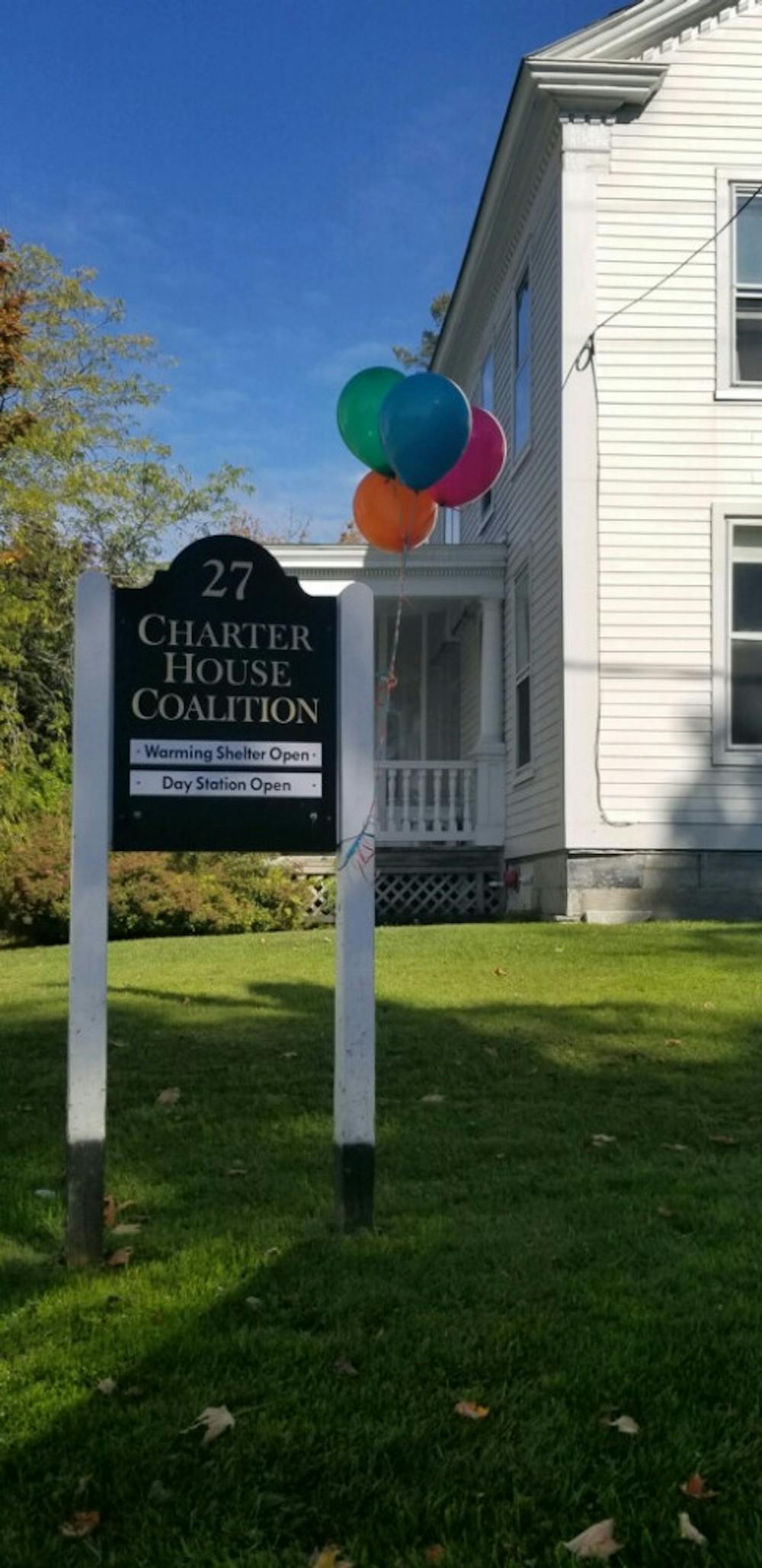After years of significantly increased demand for its services in the Addison County community, the Middlebury Charter House was open this summer for the first time in its 15–year history. To celebrate this milestone, its recent renovations, program advancements and general success with providing basic food and housing for Addison County residents in need, the house hosted an open house this past Saturday.
The Charter House, a nonprofit and volunteer-based organization located at 27 North Pleasant St., has previously only been open Oct. 15 through April 22.
“Our board had a long term goal a couple of years ago to see if we could stay open year–round,” Charter House Co-Director Doug Sinclair said.
At the open house, Charter House board members and volunteers gave visitors tours of the newly updated and changing facilities, talked with volunteers about their work and enjoyed some snacks with good company.
There were signs throughout the house with information about the services the coalition offers and the renovations that are underway. One sign stated that in 2019, the house has so far provided 7,047 bed nights — or the number of individuals multiplied by the number of nights — and 40,000 meals. Sinclair said that this is consistent with the 15% yearly growth rate the program has experienced since it started in 2004 — from its humble origins as a provider of Friday night meals to a year–round, 24/7 operating facility.
Board member Dutton Smith said the board noticed in the past few years that there was an increasing number of people sleeping under the bridge in town over the summer. “It’s not just a seasonal problem,” he said.
Charter House would have liked to be open year-round in the past, but the extra season adds significant costs that just weren’t feasible given its budget. Despite this obstacle, members felt passionate about addressing the need.
“We were able to raise some additional funds from the community, so we made the decision in March of this past year to keep the shelter open for individuals through the entire summer,” Sinclair explained.
The shelter has facilities to support both families and individuals, but found that in the summer, individual adults were most commonly in need of support.
“The shelters have been at capacity or above all summer; the need is there,” Sinclair said.

Recently open throughout this past summer, the Charter House hopes to raise enough funds to remain open through next summer.
Charter House is happy to serve the community in this additional capacity but is still struggling with funding for the next summer. The extended season costs are about $65,000, and, so far, it has only been able to raise about two-thirds of that sum. “Our goal is to now keep the shelter open year-round, but it really depends on what our financial position is when we get to next March,” Sinclair said.
These significant costs are particularly troubling at this time because of the ongoing renovation projects the Charter House is currently spearheading. “We realized three years ago that there were a lot of things the building needed,” Sinclair said. With the house being 240 years old, some of the projects are just a result of wear and tear over time; others are in accordance with efforts to make the building fully accessible given funding regulations.
One of the projects is an installation of an elevator which costs $70,000, according to Sinclair. Due to a state regulation, the initially planned elevator had to be relocated to the back of the building, costing an additional $40,000.
This was not the only time a renovation cost exceeded its original budget. One of the largest projects, a brand new kitchen, ultimately cost the program $140,000 — $30,000 higher than expected.
“You start to open up the walls in an old building and construction is much more expensive because the old walls either aren’t adequately supported or they’re just deteriorating,” Sinclair said. Problems with support beams in the kitchen space not only added that extra cost, but also extended construction by a month.
The house also installed an upgraded heating and air conditioning system at a cost of $84,000. Smith noted that the addition of air conditioning is extremely helpful given the house’s new summer services.
Additionally, the building underwent asbestos remediation at a cost $48,000, added an accessible full bath ($60,000), added access ramps ($20,000), removed an old boiler system and completely weatherized the building to minimize heat loss. All of these projects improve the building and services of Charter House, but inevitably put a financial burden on the program. “We actually started eating into our operational reserves in order to finish the work this summer,” Sinclair said.
To meet the house’s increasing needs and growing costs, Charter House relies heavily on the work of volunteers. These volunteers are usually students and retirees.
Board Member Vicky Wideman ’89 emphasized that the program is only able to succeed because of the volunteers. Wideman once heard a child staying at the house say: “I had the best day on Saturday! I played with a college student.”
Wideman said that for many of the residents, the relationships they build with the volunteers — especially with college athletes, many of whom volunteer to meet their teams’ community service component — is what is truly special about the space.
Middlebury College students who are interested in getting involved with Charter House are invited to contact Emily Carfi ’21, president of the Charter House student organization, at ecarfi@middlebury.edu. “We are always looking for more volunteers, that’s the main thing,” Carfi said.
Students and community members can also visit charterhousecoalition.org for more information and to get in touch with the co-directors of Charter House.




